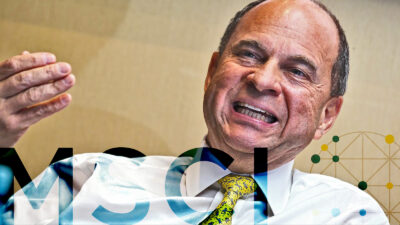Pension funds and guns: who is responsible?
Californian State Teachers Retirement System, State of Wisconsin Investment Board, University of Texas Endowment, University of Missouri Endowment, Los Angeles Fire and Police Pension, Indiana Public Retirement System, TIAA-CREF, and the Pennsylvania Public Schools Employees’ Retirement system all invested in Bushmaster Firearms – the company which made the assault rifle which Adam Lanza used to murder 20 children and seven adults in Newtown, Connecticut, in January. What is the funds’ responsibility?
Veteran NY Times columnist Joe Nocera contacted each of the funds to find out their views, at least officially through their spokespeople. In an op-ed piece in Saturday’s newspaper, he says that these funds, through investment managers, bought into a private equity fund managed by Cerberus Capital Management, which is run by the reclusive Steven Feinberg. It’s difficult being reclusive in America. Cerberus referred to its strategy in this instance as its “gun roll-up”. It wanted to put together a number of arms manufacturers and float it off. That’s what PE managers do. The initial investment was through Freedom Group.
Nocera writes: “When I called these investors to ask their rationale for investing in a fund that financed a gun ‘roll-up’, as the Cerberus strategy is called, I got three main responses.
“The first was that the percentage of their investment that went to Freedom Group was minuscule. “We have a very small investment in Bushmaster, which translates to about $1 million,” said Dianne Klein, a spokeswoman for the University of California system. (She added that the California system was going to divest its gun holdings.) Jennifer Hollingshead at the University of Missouri told me that the endowment’s exposure was less than $US450,000 – “which represents about 0.01 percent of our total portfolio.”
“The second response was that, as limited partners, the institutional investors didn’t have a say in how Cerberus invested the money. The fact that Feinberg decided to buy companies whose guns have repeatedly been used for mass slaughter was, in effect, his decision to make.
“The third was that the core duty of a pension fund or university endowment is to maximize returns. Nobody made this point more vehemently than Bruce Zimmerman, a spokesman for the University of Texas Investment Management Company. “We have no plans to divest,” he said. “We invest strictly on economic considerations, and we do not take into account social and political consideration
“Cerberus never tried to hide what it was doing. And why would it? It was proud of its gun strategy. It held annual meetings with its investors and talked freely about Freedom Group. Investors were also aware that in 2010, Cerberus had tried (and failed) to take Freedom Group public.
“But until Newtown, none of the investors gave the business a second’s thought. Aurora, Fort Hood, Wisconsin – and dozens of other mass slaughters – came and went, and the investors stuck with Cerberus.”
So, what is the funds’ responsibility?







